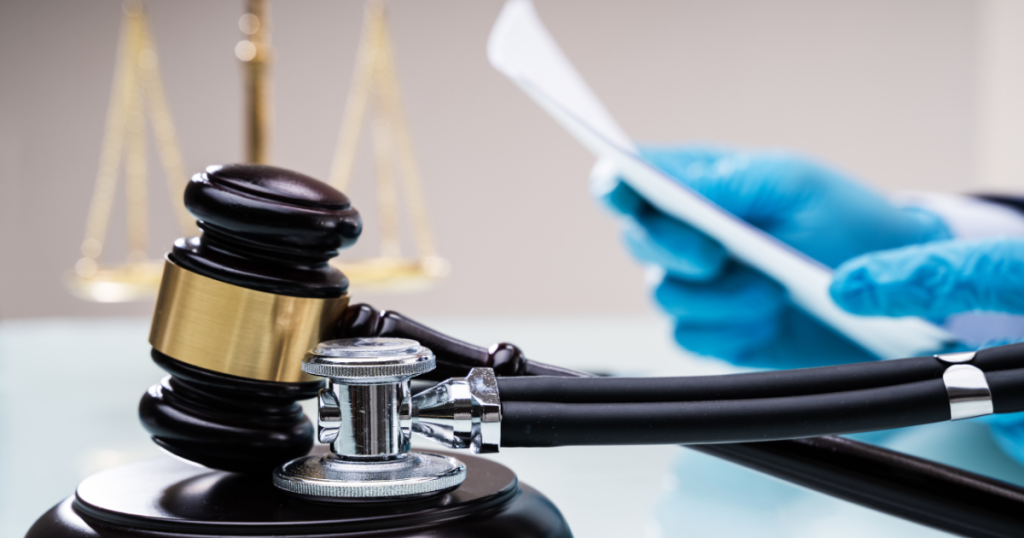Now Reading: How to Settle a Medical Malpractice Claim
-
01
How to Settle a Medical Malpractice Claim
How to Settle a Medical Malpractice Claim
Medical malpractice cases are common, but they are very difficult to prove and win. Unless a medical provider has deviated from their expected standard of care, it is difficult to hold them liable for negligence. Healthcare insurance providers may argue that some complications were unavoidable. Therefore, it becomes difficult to hold medical practitioners liable. However, there are certain cases of malpractice that you can prove and claim for settlement. These cases can include the following: surgical errors, no informed consent, failure to diagnose a problem, wrong prescriptions as well as nursing home negligence, among others. If you can prove that a medical professional committed medical mistakes, then you are eligible to get fair compensation. As such, read on to learn how to settle a medical malpractice claim.
The Medical Malpractice Claim Process
The medical malpractice process is usually a challenging case to win. It is for this reason that you need to seek competent legal representation to reach a negotiated settlement. Legal experts at Curcio-Law.com recommend that you should hire a professional medical malpractice attorney to settle a claim that involves negligence during treatment. When you get the right attorney, they know how to handle your case the best way possible, given their level of experience. The most important thing in the medical malpractice claim process is to prove negligence. This is when your attorney comes in handy.
Regardless of how simple your medical malpractice case is, you should never handle everything on your own. Often, DIY solutions will only cause bigger problems in court. If you want to get the best results from your medical malpractice claim, make sure to hire an experienced medical malpractice lawyer to help you. Paying for their training and experience is a cost-effective investment as you’ll be able to obtain the following benefits:
- They Understand The Process Of Investigating Your Claims
As mentioned, proving someone else’s negligence will require a lot of things from you. Often, you’ll have to comply with documents and provide proof to support your case. Knowing what these pieces of evidence are and how you can get them is already challenging, which is why it’s best if you let a medical malpractice lawyer do all the hard work for you. With their experience, you’ll have peace of mind knowing that your medical malpractice case is handled only by the best. - They Know How To Negotiate
Being a victim of medical malpractice will take a toll on your life. Depending on the gravity of the incident, being a victim in cases like these will require you take some days off from work to rest or spend a lot of money for your recovery. In worse cases, being a victim of medical malpractice can even become the reason you’ll end up being paralyzed.
Medical malpractice lawyers understand what you’re going through, and will work for you to ensure that you’re properly compensated for such. Medical malpractice lawyers know how to properly represent your case in court so you’ll walk away with the compensation that you deserve. - They Can Save You Time And Money
Choosing to handle a medical malpractice claim on your own might seem cheap, but doing so without the necessary training and experience will only cause more stress and money down the road.
If you want to get the compensation you deserve the first time, it’s best if you work with a medical malpractice lawyer right away. The money you’ll pay for their legal services will be worth it as you’ll have more time and money to spend for your recovery.
Prove Causation and Negligence
With the help of your qualified medical malpractice attorney, you can begin your case. An experienced lawyer can help you gather all pertinent information that can be used to prove negligence and causation of a secondary healthcare issue. The starting point is to contact the doctor who provided medical treatment before you file a claim. The aim here is to try to convince the medical practitioner to check what could have gone wrong during the treatment process. If you reach an agreement, the doctor can offer a solution, or correct the problem free of charge.
You can contact the medical licensing board when you realize that you have failed to reach an agreement with your doctor. For instance, if it is a case of misdiagnosis, you need to present your evidence to the licensing board. While a licensing board has no power to order the doctor to compensate you, guidance about the next steps that you should take will be provided. This is when you need to file for trial and present your evidence to prove a case of malpractice.
Seek Medical Assessment
It is important to seek a medical assessment from another doctor to confirm an act of malpractice. You can get a certificate of merit that is later used in pursuing your case of malpractice. The second medical expert you visit must certify that your original doctor did not follow the accepted medical procedures which caused your injuries. Then, your attorney will file the certificate of merit as confirmation of medical malpractice.
Negotiating A Settlement For Medical Malpractice Claim
When it is proved that the doctor is liable for the injuries suffered, you’re allowed to negotiate the value of the claim. The value of the claim is determined by several factors that include the following:
- Loss of income
- Permanent injuries that can affect your future earnings
- Physical and emotional pain suffered
However, if the outcome of the case is successful, there is no fixed monetary value to the compensation offered. As noted above, the final settlement is determined by many factors. All the same, compensation to the injuries endured is much better than walking away empty-handed.
Out-of-court Settlement
The malpractice claim process is usually longer than what you would expect. Such cases are costly and time-consuming. Unfortunately, they are often rejected. Therefore, when a certificate of merit is obtained, and proof of negligence is documented, one should consider the option of an out-of-court settlement. If the doctor is remorseful and willing to cooperate, it will be a good idea to settle your case out of court instead of going through the winding process that can yield nothing at the end of the day.
Takeaway Points
We are often faced with circumstances that we don’t know how to react to. Medical malpractice cases are common, but the main issue is that the claim process is usually complicated. It is important to prove negligence first before you file for compensation from your doctor. You should also know that different factors are considered when you negotiate for settlement after proving medical malpractice. Alternatively, you can consider out-of-court settlement since it can save you money and time.









